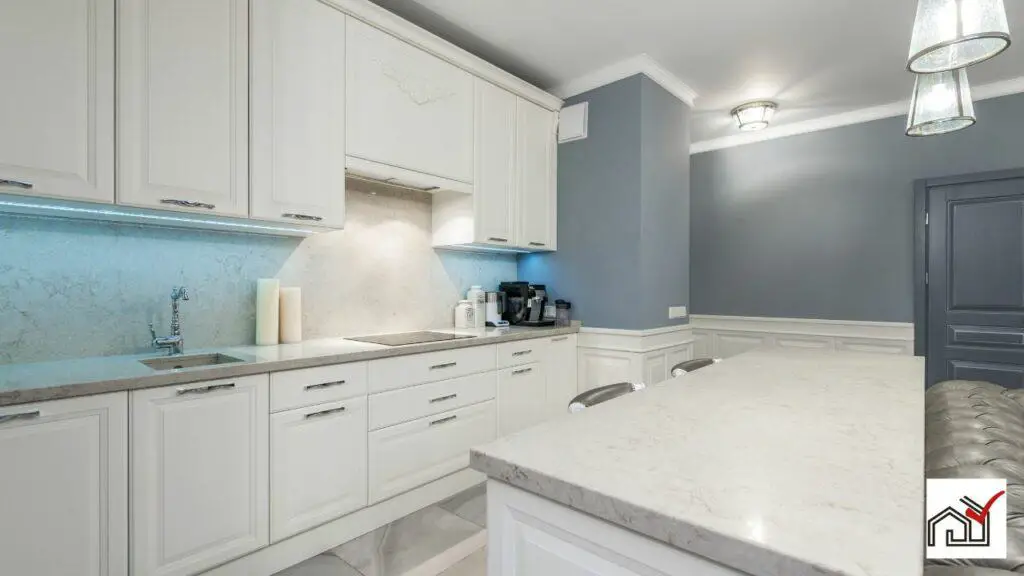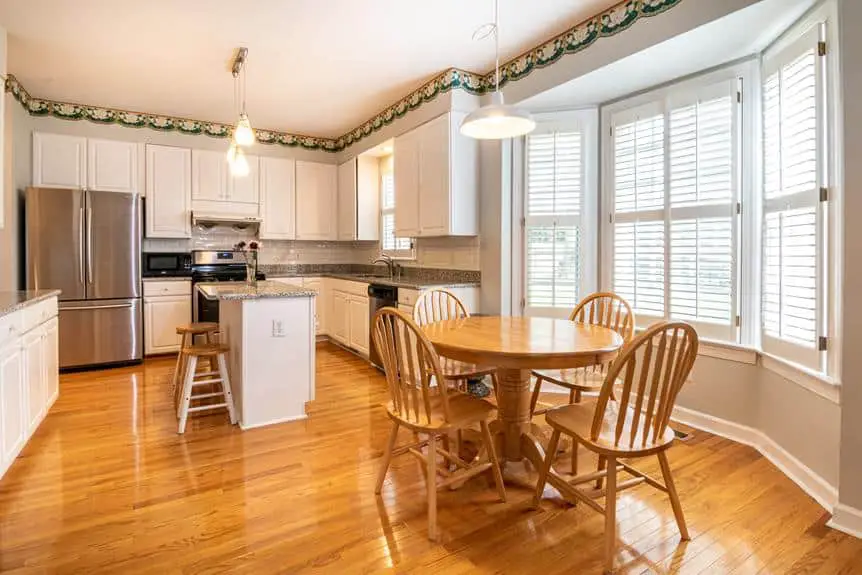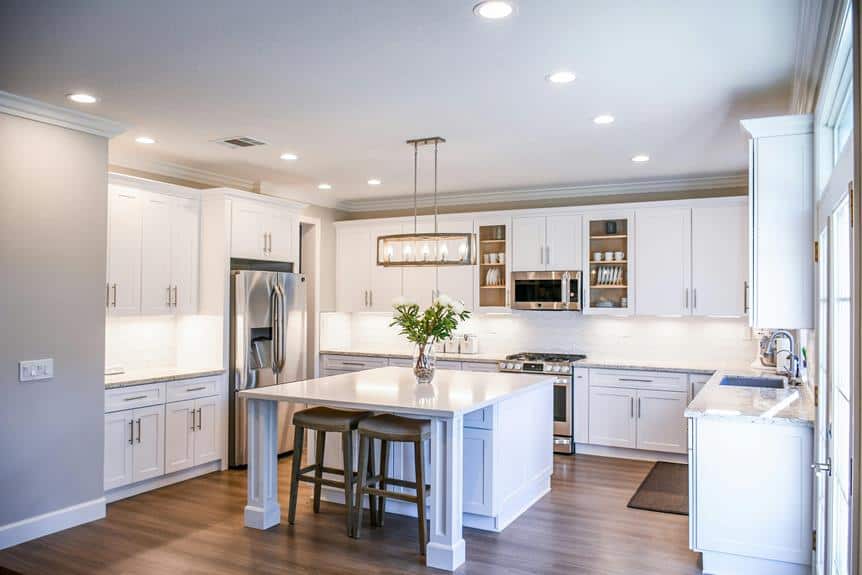Are you wondering about the durability of porcelain countertops?
Porcelain isn’t a traditional countertop choice, so it’s understandable to be curious about its durability.
Durability of Porcelain Countertops
Porcelain countertops are very durable. Due to their strong structure and lack of porosity, porcelain countertops are resistant to scratching and etching. The use of glazing during the manufacturing process also increases their heat resistance capability, and thus their durability.
5 Reasons Why Porcelain Countertops Are Durable
Here are 5 reasons that make porcelain countertops durable.
1. Heat Resistance
When it comes to durable countertop materials, porcelain is certainly at the top of the list.
One of the main reasons for this is the heat resistance ability of porcelain countertops, which is one of their biggest advantages.
Porcelain countertops go through very high temperatures during their production.
So they can handle hot pots and pans very well without getting damaged.
This makes porcelain countertops ideal for everyday heavy kitchen use.
In fact, quartz countertops don’t even come close to the heat resistance capabilities of porcelain countertops.
You will be impressed by these countertops’ ability to withstand heat without showing any signs of damage.
2. Hardness
Porcelain countertops are known for their hardness.
Their toughness makes them strong enough to resist scratches and take plenty of wear and tear.
You can keep hot pots and pans on them without a second thought.
You can even slice and dice food items on them without worrying about ruining their looks.
The hardness of porcelain countertops puts them second only to stone.
No matter how hard you try, the surface of a porcelain countertop will probably not chip or crack under pressure.
However, they aren’t indestructible; remember that!
But porcelain countertops are extremely tough, and they can last for years with proper maintenance.
Further Reading: 3 Simple Ways to Clean Porcelain Countertops
3. Stain Resistance
When it comes to countertops, no surface is 100% stain-proof. But porcelain comes very close.
Its non-porous property prevents any liquid from getting absorbed, making it difficult for stains to settle.
On a rare occasion, if there is a stain on the surface, you can easily wipe it off.
Not only that, but porcelain countertops are resistant to most chemicals and won’t get dull spots or etches from acidic foods, like marble countertops.
So you don’t have to worry about spills or acidic substances discoloring your countertop over time.
Unlike quartz, porcelain countertops don’t get dull or bleached out by chemicals.
All these properties make porcelain countertops incredibly durable for home use.
4. Scratch Resistance

Porcelain countertops are highly resistant to scratches.
Similar to granite and quartz countertops, it’s almost impossible to scratch porcelain surfaces.
That being said, one thing you should keep in mind is that porcelain countertops can get scratched by ceramic knives if they are not handled properly.
Also, any damages such as cracks or scratches can’t be repaired. The best solution is to try to hide them if possible.
However, cracks and scratches aren’t very common in porcelain countertops.
But to avoid any risks of scratching the surface of porcelain countertops with a knife, always use a cutting board when chopping and slicing food items.
This will help ensure that your porcelain countertop stays new for years to come.
5. UV Resistance
Not only are porcelain countertops heat and moisture-resistant, but they’re also highly UV-resistant.
This makes them great for areas that might be exposed to direct sunlight.
This is because the UV rays won’t fade the colors of porcelain countertops nor make them lose their luster over time like some other countertops.
With a porcelain countertop, you can rest easy knowing that they will continue to look beautiful even when exposed to extreme sunlight.
So if you need a durable countertop for any part of your home, go with the one made of porcelain – you won’t regret it.
Recommended Reading:
Why Might You Not Want to Consider Getting a Porcelain Countertop?
Although porcelain is widely known for its durability and resilience, it’s actually very fragile during the fabrication process and can chip or crack.
This makes it very important to find an experienced fabricator that has experience in handling porcelain countertops.
While these countertops have attractive design patterns on their surface, the patterns aren’t built into the countertop.
The design patterns are just printed over their surface.
This means that if you try to put round edges on these countertops, the patterns won’t be there on them.
Moreover, if porcelain countertops chip, their interior surface will appear as one solid color without any design pattern.
Furthermore, there are some limitations to producing complex edge profiles for porcelain countertops.
For example, edge profiles like ogee aren’t possible on these countertops.
Additionally, extra care must be taken when applying edges to porcelain countertops because the design patterns around the edges can get damaged.
For this reason, mitered or square edges work best with these countertops as they don’t go too deep to scrape away their design patterns.
However, technology is being developed to facilitate more edging options for porcelain countertops.
But if you need a countertop that offers more customized edges, you need to look elsewhere for your countertop needs.




